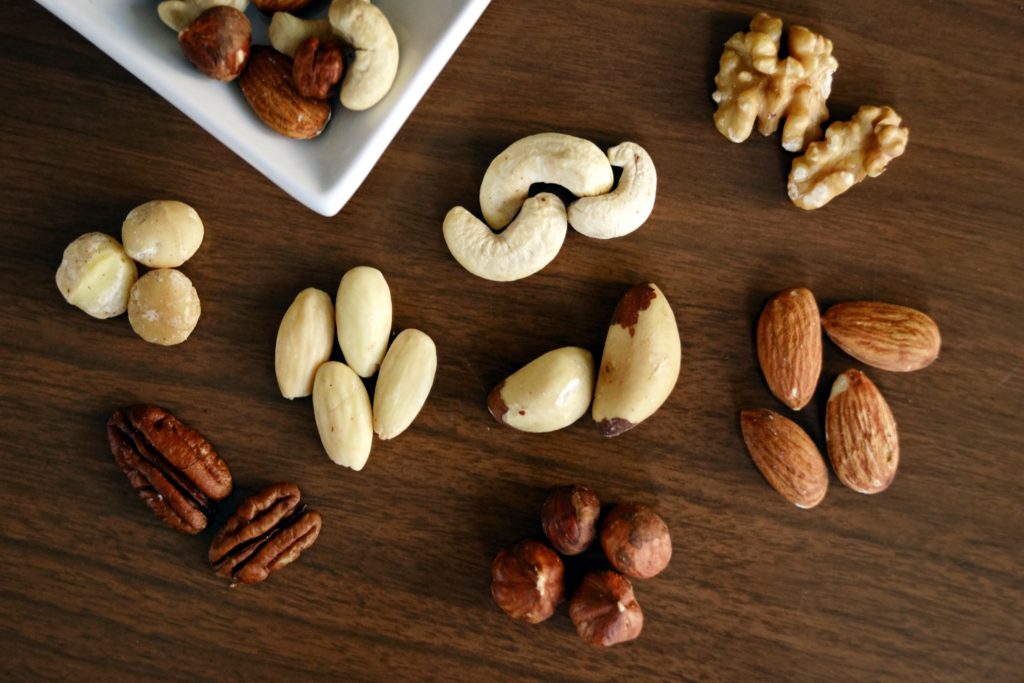Almonds
Delicate, slightly sweet flavor.
- PROTEIN: 19 percent
- FAT: 50 percent
- RICH IN: calcium, vitamin E, B vitamins, iron, potassium, phosphorus, magnesium, copper and zinc
- BENEFITS: rich in antioxidants, controls cholesterol, protects heart, improves memory, improves skin health, stabilizes blood sugar, helps in bone health
